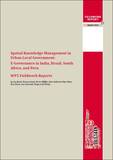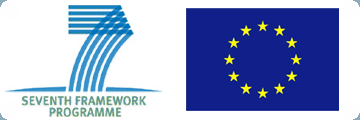|
This report concerns the extent to which participatory spatialized knowledge construction and learning are conducive to dealing with challenges of strategic domains of urban development; such as economic growth, reducing social inequalities and vulnerabilities, increasing environmental sustainability, and making use of decentralized and participatory fiscal flows. Our main idea is that spatial knowledge construction and use is a strategic instrument in urban development, making explicit the various types of knowledge existing in cities, and reflecting the priorities of different actors in the city (government, private sector and citizens). We focus on urban development processes in which various kinds of knowledge are produced, exchanged, contested and used, and the extent to which joint learning and collective local formulation of principles of change is generated by such processes.
Urban development processes reflect the dialectical relationship between society and space, as understood from the perspective of human geography. Specifically, space is socially produced but space and place act back on society and influence the structuring of society in a relational manner (Massey 2004; Peet, 1998). These dialectical relationships need to be explored in the processes of knowledge production and practices of urban planning and management so as to address the challenges facing cities in the South and to ensure more sustainable outcomes (Swilling, 2006).
Subreport: Contested Meanings of Slum in Indian Cities: Implications (Beyond) RAY |
Recent Chance2Sustain PublicationsMegaprojects and Urban Development in Cities of the South by Loraine Kennedy et al.
Traveling Concepts in Megaproject Building by Loraine Kennedy and Glen Robbins
Sustainable Data Science for Sustainable Cities: Big Data and the Challenge of Urban Development by Linnet Taylor
Participatory Mapping in Informal Settlements: An Instrument for Empowerment, or Exclusion? Reflections from Three Cities in South Africa and India by Catherine Sutherland et al.
Mapping as Tool to Understand Urban Inequalities by Isa Baud and Karin Pfeffer |
|
|
|
|
|

